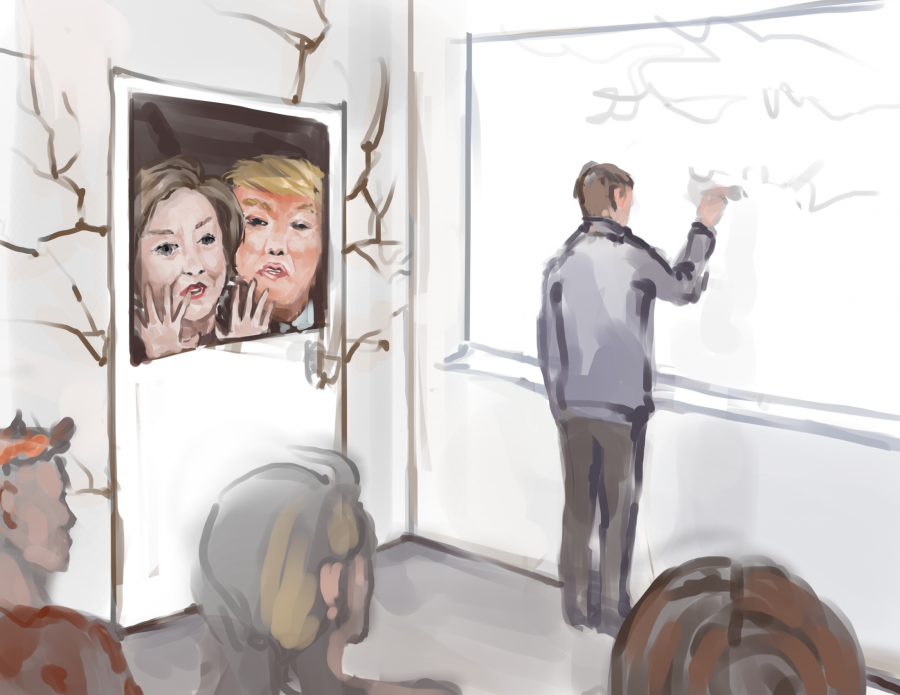Today, we could have taken a pause. We could have moved tests, quizzes, lesson plans to tomorrow. For one day, we could have taken a small break.
In the past two issues, the Chronicle Editorial Board urged the community to come together and for faculty to address global events, consequences and divisiveness during class. Last week, advocacy clubs tried to start a conversation about derogatory language, again calling for some time to be allotted for discussion.
Today, senior staff members on the Chronicle begrudgingly talked about math tests and physics homework and reading that just couldn’t get done last night. Classes seemed like a joke.
There is immense value for students to get adult input on these historical moments, and at this school we are lucky enough to have access to knowledgeable and compassionate teachers.
Of course, not all faculty scheduled assessments for today, and some teachers did make sure that students felt like they have an outlet to discuss their concerns, whether about the country’s future or how a predominantly liberal community will view someone who is more conservative (for reference, 72.2 percent of upper school students voted for Hillary Clinton in a mock election, with third party candidates receiving roughly 13 percent of the vote). Interim Head of Upper School Liz Resnick sent an email to faculty to make sure that everyone is being kind to each other and feeling safe, regardless of political opinions. We applaud those faculty and administrators. Someday when we explain 2016 to our children, we will remember those teachers who took the time to have a dialogue. But it isn’t enough.
Though some may have wanted to avoid a political discussion, there is no avoiding how negative and alienating this election was. That’s worth talking about. It’s worth it to try to find optimism in a sea of pessimism.
Today, there was an opportunity for a dynamic all-school assembly. As students, we are the future of the country. We cannot let the divisiveness or negativity of this election season foster a lack of political efficacy. We cannot let two candidates further bifurcate the student body. We cannot allow students to be crying or yelling or sitting in heartbreaking silence on the quad without some sort of community response.
Today, we could have walked into an assembly and seen a faculty and administration, who may differ in political identifications, stand united. Again, not political, but positive. We could have been told that frustration or anger is okay and that there is a community here to support us. We could have been told that everyone deserves respect. We could have left that assembly knowing that this school is a place where we can have different political views, but still see value in compromise and togetherness and respect.
We could have walked into classes and spent maybe ten minutes hearing our teachers say, “No matter what side of the aisle you fall on, we’re here together.” During first period, we could have watched the first woman candidate of a major political party concede to the first president without any government experience.
Luckily, Harvard-Westlake can still turn those “could’s” into “did’s.” We challenge the school to be more responsive to divisive and distinctive moments so that by the end of the year, we will hopefully write articles and editorials about how proud we are of where we’ve come rather than what we need to do better.































